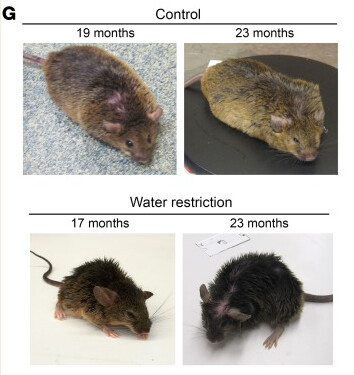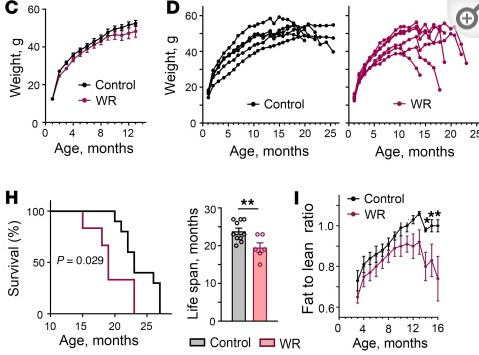The problem is what the sodium is doing I think, namely reducing hydration of cells. Of course if someone drinks enough water, there’s no problem, but that might be harder than expected. Like when sleeping after high sodium meal, diminished thirst response in general or from older age. There is also the moment after a meal and when thirst is triggered where there probably will be sub-optimal hydration.
Even mild hypohydration where serum sodium levels slightly increase, even within normal levels, decrease mouse lifespan.
Using a mouse model of lifelong mild water restriction, we demonstrated that hypohydration led to an increased metabolic rate and energy expenditure and induced a low-grade proinflammatory and procoagulative state; these conditions are all known promoters of chronic morbidity, disability, and premature death (17–21). Consistently, water restriction caused accelerated renal, cardiac, and neuromotor degenerative changes and decreased mouse lifespan.
And the mouse adapted to the decrease in hydration levels, and starting by the end of the life “it all came crashing down”, similar to how aging is slow but then has large effects:
the mice easily adapted to such water restriction and showed no visible distress.

See how the mice look aged and frail.

We get thirsty after a higher sodium meal because water is pulled out of our cells to dilute the blood from too high sodium levels I think.
The WR mice had also accelerated metabolism (energy expenditure) which apparently is a risk factor for accelerated aging, which makes me think about how good too much exercise is as well:
These results indicated that WR mice remodeled metabolism toward metabolic water formation that allowed them to respond efficiently to a water deficit and stay in water balance. Conversely, to achieve such efficiency the WR mice had to increase energy expenditure (Figure 1, J–M). This reaction is a risk factor for accelerated aging (18) and could contribute to a decreased life span (Figure 1H).
The water restriction (high sodium) also hit many different diseases negatively, and the water restricted mice even had lower BP!
That’s an association study on people with type 1 diabetes, there’s lots of confounding factors (like frailty, not eating enough food), that increase mortality. The urinary collection 1 time in 24h period is also apparently controversial as it doesn’t really capture the sodium intake that accurately.
To me this is all starting to make sense, that minimum sodium intake is good. The association with fruit and vegetables that are low in sodium and high in water also is another datapoint of association. I’d imagine the centenarians in the blue zones didn’t eat that much sodium, like the Okinawans that ate mostly sweet potato. I don’t know about people around the Med when they ate a lot of grains and beans with fruit and vegetables and olive oil.